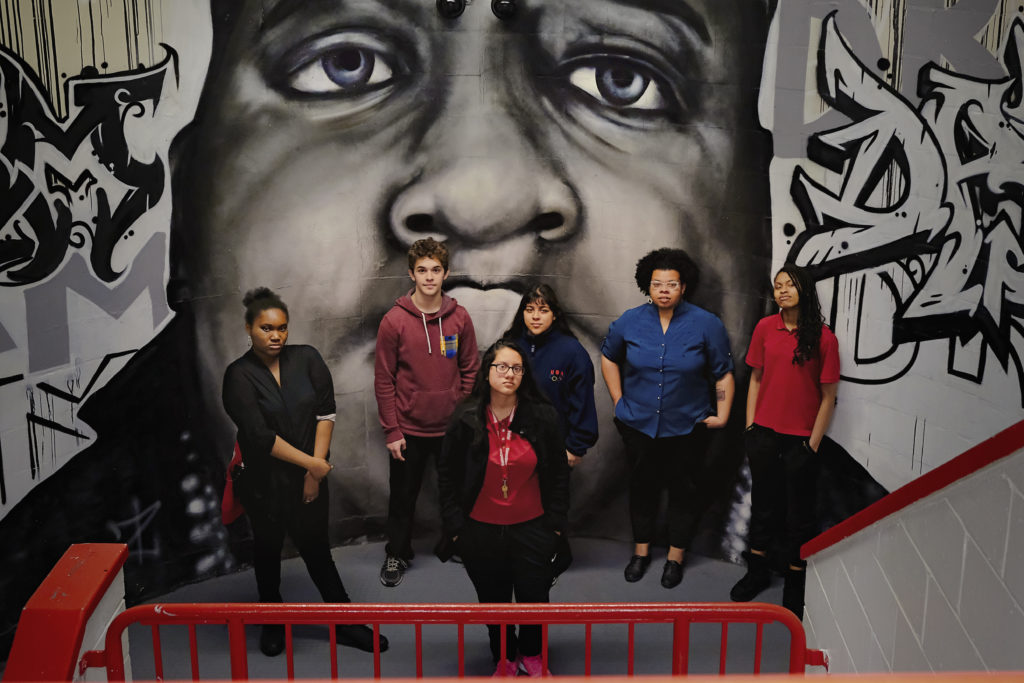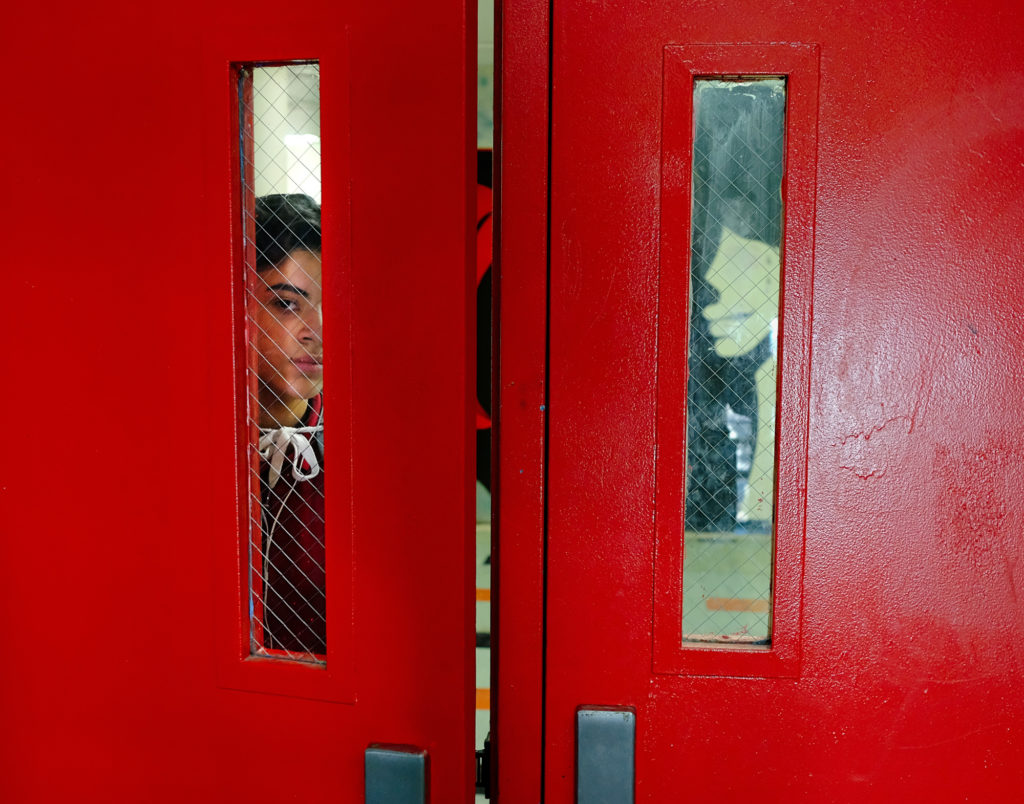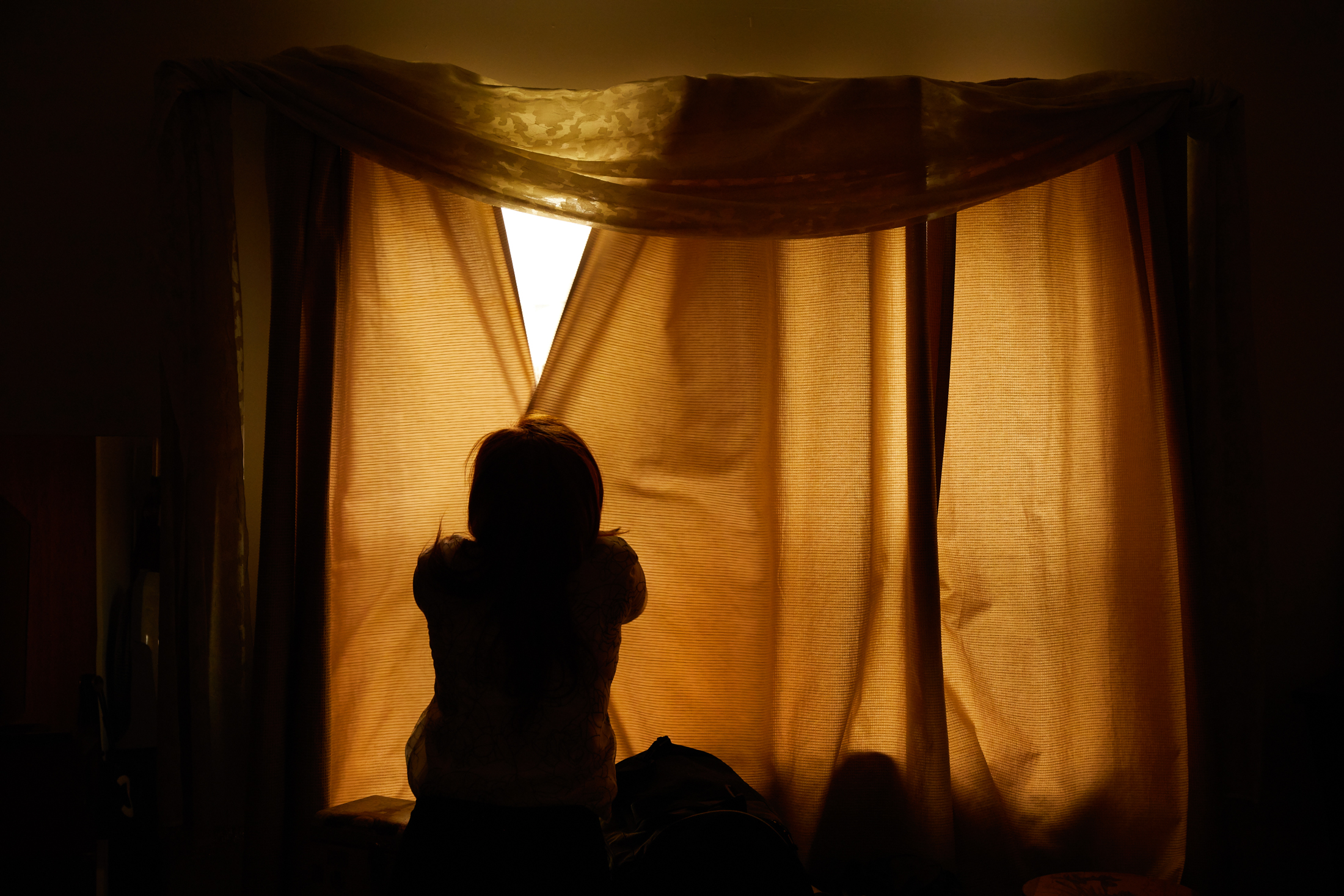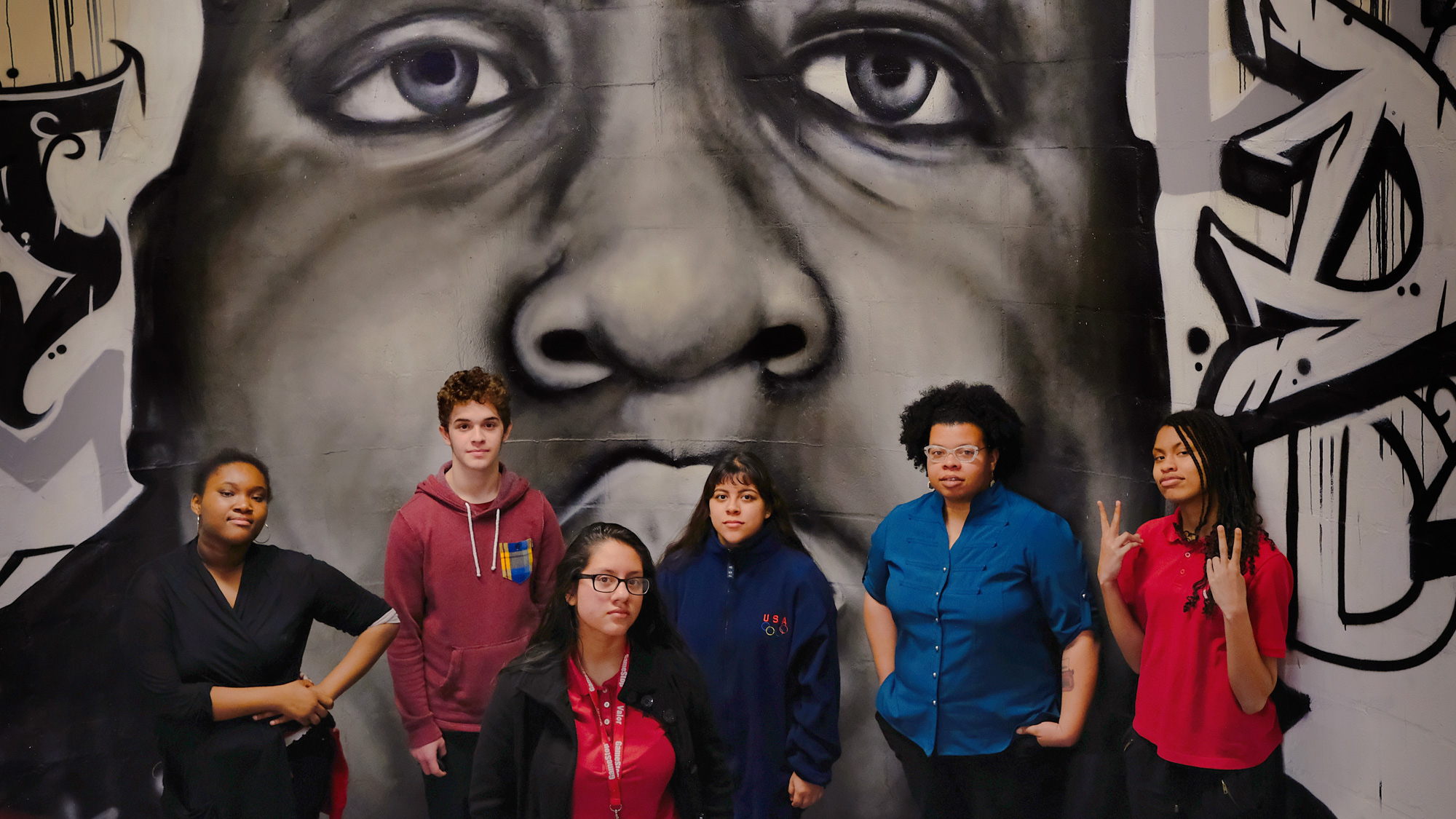“Portuguese women are always nannies. They love taking care of children.”
For the last several months I have been working with five teenagers on an audio-journaling project for Newest Americans in partnership with a local Newark high school in the Ironbound. I have heard about crushes, boyfriends, and teenage hookups. I’ve received insights on our new president. I have seen the things these kids post on snapchat. But the above revelation is what disrupted my worldview in ways that I have yet to reconcile. Its source is Jay, a fifteen-year-old student at the school, whose family migrated to Newark from Portugal before he was born.
East Side High is the most diverse public high school in the city. The majority of the students are Portuguese, Brazilian, Latinx, and African-American. East Side offers comprehensive Spanish and Portuguese bilingual programs. It’s the only high school in the city with a hockey team. I began this project with just two assumptions. That this school is pretty awesome. And Portuguese people are indisputably white. Portugal is in Europe after all.

The first assumption proved to be true. The second began to crumble the minute I met Jenn. Jenn is seventeen and a senior at East Side. During one of our first recorded conversations she revealed that her mother migrated to Newark from Ecuador and she was raised by a Portuguese nanny. Here’s the thing. I thought I knew every narrative there was to know about domestic workers. Black women in postbellum Atlanta. Or on street-corner markets for domestics in New York City. Late 19th-century Irish women. Latina, Caribbean, West African, and South Asian immigrant women, products of the post-1965 era immigration wave. Portuguese women were nowhere to be found in the narrative I knew. No mention in the scholarly literature on the subject. Yet, Jenn and Jay were telling a totally different story.
Jenn was not the only child her nanny, Maria, took care of at her home in the Ironbound. But because her mom worked two jobs, Jenn spent more time at Maria’s than she did at home. Portuguese was her first language. She then learned Spanish by spending summers with her grandmother and English from school and Spongebob. Jenn went to Portuguese cultural celebrations and often visited Maria’s Portuguese Catholic church.
Maria treated Jenn like she was a member of the family. This was not at all the way this relationship was supposed to go. Rich women from Park Slope call their domestic workers part of the family. Not the other way around. Household laborers routinely reject this label. They have their own families. As does Maria, I suppose. But the children she is paid to take care of aren’t supposed to be a part of it. At least not in my mind.
This unorthodox relationship wasn’t without its issues. Jenn remembers Maria’s friends and family members making generalizations about people from Spanish-speaking countries. “But not you Jenny,” they would say. “You’re not even hispanic to us. You’re Portuguese.” Jenn recounts these encounters matter-of-factly. Her nonchalance, however, doesn’t prevent her from sometimes feeling like a gringa because she’s not connected to Ecuador in that way she imagines she should be.
Not everything about Jenn’s story is disorienting. She talks about Maria with great affection and sadness. Maria is elderly and very sick, but she and Jenn remain close. There’s nothing strange about a woman of color working two jobs and needing help taking care of her children. And like me, Jenn’s world is dominated by women.
Seven years in Newark and a Ph.D. were not any help to me when trying to figure out the relationship between Portuguese migrants and whiteness. So I asked the kids. “Are Portuguese people white?” They were just as confused as I was. “Yes! No! Not really. They’re more like hispanics,” they answered. Followed by baffled looks and awkward teenage silence. This I was familiar with. It meant that the question wasn’t nearly as important to them as it was to me.
While I still haven’t figured out the answer for myself, I’m appreciative for the disruption in my thinking. But I am especially grateful for Jenn. Her openness reminded me that the story of domestic workers, whether they were black women traveling North during the Great Migration, or immigrant women coming across the border, or Maria from Portugal, isn’t done being written.







